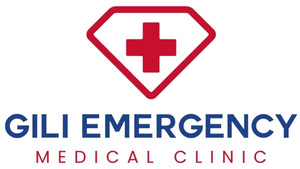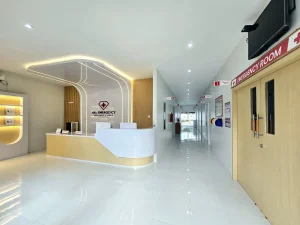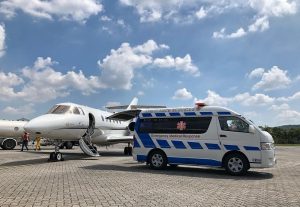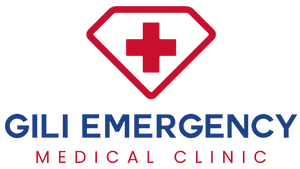Gili Trawangan, a tropical paradise off the coast of Lombok, Indonesia, is known for its white sandy beaches, turquoise waters, and vibrant nightlife. It’s a haven for divers, backpackers, honeymooners, and adventure seekers. But like any destination, emergencies can happen — from diving accidents and dehydration to scooter crashes and allergic reactions. That’s where Introducing Gili Emergency Medical Services (Gili EMS) comes in — your lifeline when things go wrong in paradise.
As beautiful as Gili Trawangan is, it presents unique challenges in medical emergencies. The island has no cars or motorbikes, only bicycles and horse-drawn carts (cidomo). Transportation to hospitals on the mainland takes time, especially in critical situations. Medical infrastructure is limited, and visitors often don’t know where to turn when accidents occur.
Enter Introducing Gili Emergency Medical Services — the first rapid-response medical team dedicated to serving tourists and locals on Gili Trawangan. With experienced professionals and fast action, they fill a crucial gap in island healthcare.
Who Are Introducing Gili Emergency Medical Services?

Introducing Gili Emergency Medical Services is a team of trained emergency responders, nurses, and first-aid professionals based right on the island. They are equipped with first-aid kits, oxygen tanks, automated defibrillators (AEDs), trauma care equipment, and communication systems to coordinate with hospitals in Lombok or Bali.
Their services range from on-site emergency assistance to patient stabilization and evacuation. Whether it’s a jellyfish sting or a head trauma, Gili EMS is ready 24/7.
Common Medical Emergencies on Gili Trawangan
While Gili Trawangan is generally safe, some of the most common emergencies include:
- Diving-related injuries: Decompression sickness (the bends), ear barotrauma, and marine animal bites.
- Dehydration & heatstroke: Especially during dry season, tourists underestimate the tropical heat.
- Motorbike and bicycle accidents: Although motorbikes are banned, e-bikes and fast bicycles often cause collisions.
- Food allergies and reactions: Language barriers may lead to miscommunication about ingredients.
- Alcohol poisoning or drug-related issues: Due to the party scene, overconsumption occasionally becomes dangerous.
- Cuts, fractures, and sprains: From coral cuts while snorkeling to tripping on uneven paths at night.
What Services Does Gili EMS Provide?

Gili Emergency Medical Services offers a wide range of critical support:
1. Emergency First Response
Immediate assistance during accidents, including CPR, wound dressing, immobilization, and shock management.
2. On-Island Stabilization
Professionals stabilize patients before evacuation, which is vital when delays could be fatal.
3. Medical Evacuation Coordination
If necessary, Gili EMS arranges fast boat transport to the nearest hospital in Lombok (usually in Bangsal or Mataram), or via helicopter in extreme emergencies.
4. Multilingual Support
The team is trained to handle language barriers and can communicate in English, Bahasa Indonesia, and often other languages such as French or German.
5. DAN (Divers Alert Network) Protocols
Gili EMS is trained in dive emergency response, working in partnership with local dive centers and DAN to treat decompression illness swiftly.
Why Tourists Trust Gili EMS

The success of Gili EMS lies in its:
- Speed – They arrive fast and can navigate the island quickly using bicycles or foot teams.
- Local knowledge – They know the terrain, tides, transport logistics, and evacuation protocols.
- Professionalism – They’re trained, equipped, and often experienced in international emergency standards.
- Partnerships – Collaborations with clinics, hospitals, dive shops, and boats make their services comprehensive.
Tourists often share stories of how Gili EMS “saved their trip” or even their life. From fainting guests to injured snorkelers, the response is consistently praised in online reviews and travel blogs.
Tips to Stay Safe on Introducing Gili Emergency Medical Services
While help is available, prevention is always best. Here are some tips:
- Stay hydrated and protect yourself from the sun with hats and sunscreen.
- Rent well-maintained bikes and always wear a helmet (even if it’s not common).
- Inform your hotel or host about any medical conditions.
- If diving, be honest about your health, and always dive with certified instructors.
- Avoid excessive alcohol or recreational drugs, especially in unfamiliar environments.
Many tourists come to Gili Trawangan expecting a laid-back island holiday — and that’s exactly what they get. But for the unlucky few who experience an accident or illness, having a rapid, professional response team makes all the difference. Introducing Gili Emergency Medical Services isn’t just a nice-to-have. It’s a vital part of the island’s ecosystem, giving travelers the peace of mind they deserve. In a place without hospitals or ambulances, Gili EMS is your safety net.
So the next time you pack your bags for Gili Trawangan, don’t forget your snorkel, sunglasses, and flip-flops — and don’t forget to save Gili EMS in your contacts. Because even in paradise, emergencies don’t wait — but thanks to Gili EMS, help is always near.









